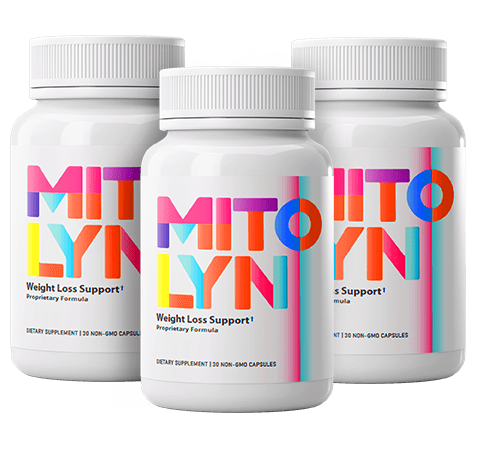The Ultimate Guide to Clean Eating: How to Optimize Your Health with Nutrient-Dense Foods
Are you looking to improve your health and well-being through clean eating? Clean eating is a lifestyle that focuses on consuming whole, unprocessed foods that are rich in nutrients and free from additives and artificial ingredients. By incorporating nutrient-dense foods into your diet, you can optimize your health, boost your energy levels, and even prevent chronic diseases.
What is Clean Eating?
Clean eating is all about choosing foods that are as close to their natural state as possible. This means opting for fruits, vegetables, whole grains, lean proteins, and healthy fats, while avoiding processed foods, refined sugars, and artificial additives. By focusing on whole, nutrient-dense foods, you can fuel your body with the essential vitamins, minerals, and antioxidants it needs to function at its best.
Benefits of Clean Eating
There are numerous benefits to adopting a clean eating lifestyle. Some of the key advantages include:
- Improved overall health and well-being
- Increased energy levels
- Weight management and potential weight loss
- Reduced risk of chronic diseases such as heart disease, diabetes, and cancer
- Enhanced digestion and gut health
- Clearer skin and improved complexion
How to Start Clean Eating
Ready to kickstart your clean eating journey? Here are some tips to help you get started:
1. Stock Up on Whole Foods
Fill your pantry and fridge with whole, nutrient-dense foods such as fruits, vegetables, whole grains, lean proteins, and healthy fats. Aim to incorporate a variety of colors and textures to ensure you’re getting a wide range of nutrients.
2. Read Labels Carefully
When shopping for packaged foods, be sure to read the labels carefully. Look for products with short ingredient lists and avoid those that contain additives, preservatives, and artificial sweeteners.
3. Cook at Home
Preparing meals at home allows you to control the ingredients and cooking methods used. Experiment with new recipes and flavors to keep things interesting and enjoyable.
4. Stay Hydrated
Drink plenty of water throughout the day to stay hydrated and support your body’s natural detoxification processes. Herbal teas, infused water, and coconut water are also great options.
Top Nutrient-Dense Foods to Include in Your Diet
When it comes to clean eating, certain foods pack a powerful nutritional punch. Incorporate these nutrient-dense foods into your diet to optimize your health:
1. Leafy Greens
Leafy greens such as spinach, kale, and Swiss chard are rich in vitamins, minerals, and antioxidants. They’re also low in calories and high in fiber, making them a great addition to any meal.
2. Berries
Berries like blueberries, strawberries, and raspberries are loaded with antioxidants that help protect your cells from damage. They’re also a great source of fiber and can satisfy your sweet tooth in a healthy way.
3. Nuts and Seeds
Nuts and seeds are packed with healthy fats, protein, and fiber. They make a great snack on their own or can be sprinkled on salads, oatmeal, or yogurt for added crunch and nutrition.
4. Whole Grains
Whole grains such as quinoa, brown rice, and oats are rich in fiber, vitamins, and minerals. They can help keep you feeling full and satisfied while providing sustained energy throughout the day.
5. Lean Proteins
Lean proteins like chicken, turkey, fish, and tofu are essential for building and repairing tissues, muscles, and cells. Opt for organic, grass-fed, or wild-caught options whenever possible.
Common Questions About Clean Eating
Still have questions about clean eating? Here are some common queries and answers to help you navigate this healthy lifestyle:
1. Is clean eating the same as going on a diet?
Clean eating is not a diet in the traditional sense, as it focuses on nourishing your body with whole, nutrient-dense foods rather than restricting calories or food groups. It’s a sustainable lifestyle choice that promotes overall health and well-being.
2. Can I still enjoy treats and indulgences while clean eating?
Absolutely! Clean eating is all about balance, so it’s okay to enjoy treats in moderation. Opt for healthier versions of your favorite indulgences, such as homemade desserts sweetened with natural sweeteners or dark chocolate with a high cocoa content.
3. How can I make clean eating more affordable?
While clean eating may seem expensive, there are ways to make it more budget-friendly. Shop for seasonal produce, buy in bulk, and plan your meals ahead of time to minimize waste. You can also grow your own herbs, vegetables, and fruits to save money and enjoy fresh, homegrown produce.
Conclusion
Clean eating is a simple yet powerful way to optimize your health and well-being. By focusing on whole, nutrient-dense foods and avoiding processed and artificial ingredients, you can fuel your body with the essential nutrients it needs to thrive. Start small by incorporating more fruits, vegetables, whole grains, lean proteins, and healthy fats into your diet. Experiment with new recipes and flavors to keep things interesting and enjoyable. Remember, clean eating is a journey, not a destination, so be patient with yourself and celebrate your progress along the way.
Are you ready to take the first step towards a healthier, happier you? Start clean eating today and reap the countless benefits of this nourishing lifestyle.










